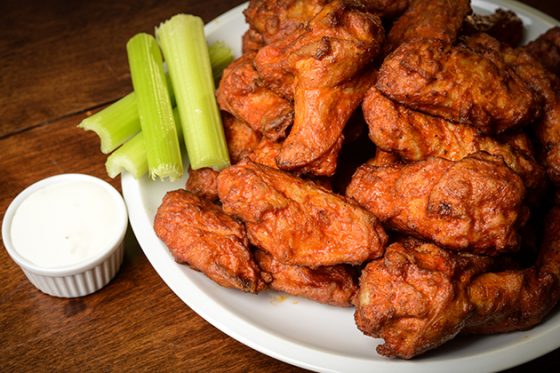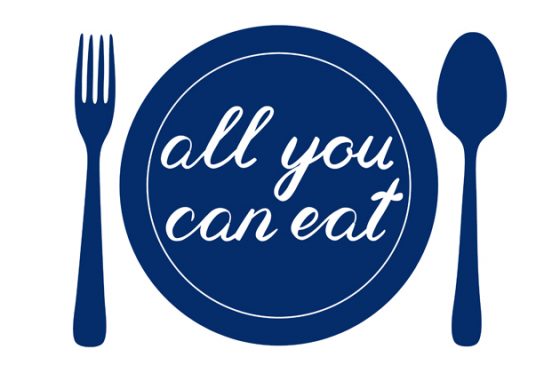Shockwaves were felt around the wing-eating world last week, when Buffalo Wild Wings announced it will be discontinuing its Tuesday night half-priced wing promotion.
According to reports, the franchise’s decision was a difficult one as the promotion was “a major driver of traffic” and “boosted same-store sales” for some locations. Ultimately, the deal was just too delicious. With wing prices on the rise (jumping 11 cents per pound in a year), the promotion started to impact the company’s bottom line. In fact, the food chain blamed the historically high wing prices for its 63% profit drop in the second quarter, turning the crowd-pleasing promotion into a losing proposition.

It is an interesting risk that many organizations, especially in retail, must take, however. How do organizations develop a promotion that attracts new customers and entices existing ones to visit more frequently, purchase something new or add a service without causing any financial hardships? And, perhaps more importantly, at what point is the promotion no longer worth it?
The majority of promotions go off without a hitch. It is probably safe to say that most of them have either a positive or neutral effect. Companies must be prepared, however, for those rare deals that negatively impact businesses’ finances or reputation.
While Buffalo Wild Wings’ risk management approach to this promotion may have intervened in time to save them from a worse fate, others have not been so lucky.
Take, for example, seafood chain Red Lobster’s 2003 all-you-can-eat summer crab leg special that ultimately put the company in hot water. Parent company Darden’s then Chief Executive Joe Lee was quoted as saying, “It wasn’t the second helping, it was the third that hurt.” “And the fourth,” then Red Lobster President Dick Rivera added on a conference call to investors.
Darden’s then Chief Executive Joe Lee was quoted as saying, “It wasn’t the second helping, it was the third that hurt.” “And the fourth,” then Red Lobster President Dick Rivera added on a conference call to investors.
The deal lasted a bit too long and was linked to the wipeout of $405.9 million in stock value in a single session, with stock prices dropping 12%.
Red Lobster isn’t alone. In 2009, Kentucky Fried Chicken decided to introduce its new grilled chicken option by hiring mega star Oprah Winfrey to make an announcement during her show, giving away an online voucher for a free lunch. About 16 million people printed out the voucher. Stores ran out of food and eventually stopped accepting the coupon. Even worse, competitors jumped in and offered discounted meals to voucher holders.
Then there was McDonald’s, which gave away MP3 players with viruses; an unapproved promotion code for free Domino’s pizza was leaked to 10,000 people; and the obvious consequences of a 10 cent beer night at a Cleveland Indians game. What could go wrong? (Hint: chaos ensued.)
Risk management can play a vital role in supporting marketing initiatives, like the creation of an effective promotion. And, for practitioners managing an enterprise risk management program, it highlights just how important collaboration between different business areas really is.
Companies can be blinded by opportunities that include increased traffic, return customers and add-on purchases. Some deals are just too good to be true—not just for the consumer, but the company making the offer as well. It is apparent that the downside of the promotion must be carefully assessed and that tolerance limits be set in order to know when to pull the plug on a deal.
When developing a risk tolerance statement for a promotion, it’s important to also realize that sometimes the financial losses associated with a promotion is not the only thing to look at and might not be a bad thing at all.
Take a look at Costco, that refuses to raise the price on its .
99 rotisserie chicken and $1.50 hotdogs.
“I can only tell you what history has shown us: When others were raising their chicken prices from $4.99 to $5.99, we were willing to eat, if you will, $30 to $40 million a year in gross margin by keeping it at $4.99,” the bulk wholesale giant’s Chief Financial Officer Richard Galanti told the Seattle Times in 2015.
The philosophy is rather simple and has worked for Costco. Cheap, delicious rotisserie chicken brings people into their warehouses. And, hopefully, on their way to pick up dinner, they will also grab new patio furniture, a television, golf clubs, a 64 oz. jar of mayonnaise and a five pound bag of cashews. The wholesaler banks on statistics indicating that consumers spend on average $136 each time they enter the warehouse.
Developing a promotion should not be done on a whim. Careful consideration must be taken before the promotion is introduced. Many different groups within the organization should be included in the conversation…and risk management can take the lead on bringing those groups together and initiating the dialogue.
buy cymbalta online https://galenapharm.com/pharmacy/cymbalta.html no prescription
So, before the company serves up that next mouth-watering deal, risk management must realize that it has a real opportunity to support value creation and show its worth way before the pot boils over.

capitalism is so cruel and tasteless
I trust you’ve done a lot of field research for this piece.
Well written! You’ve “earned your Red Lobster” with this piece.